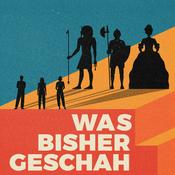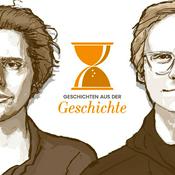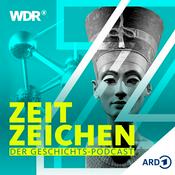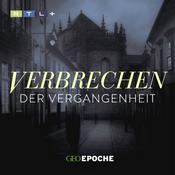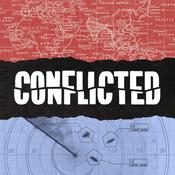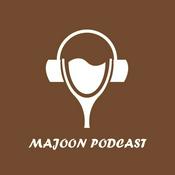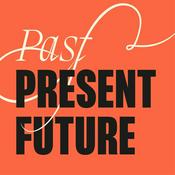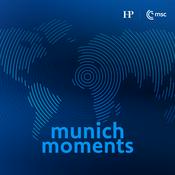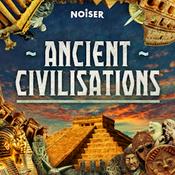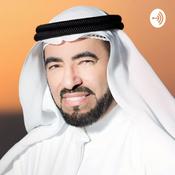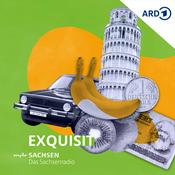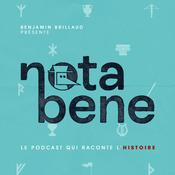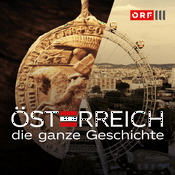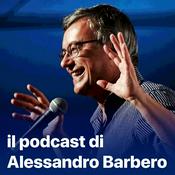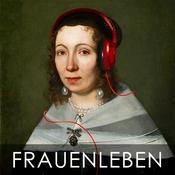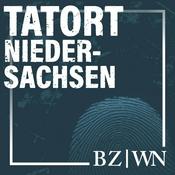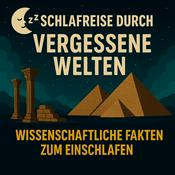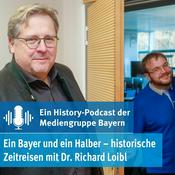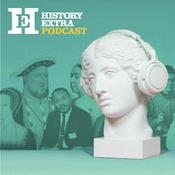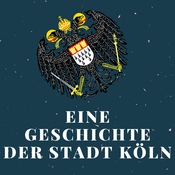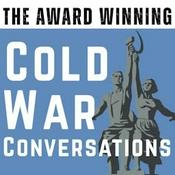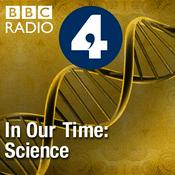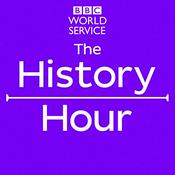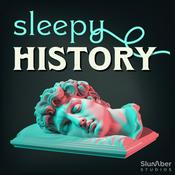74 Episoden
"On Auschwitz" (69): Contacts between SS garrison of KL Auschwitz and the local population of the Oświęcim area (1940-45)
09.2.2026 | 50 Min.How the demographic structure of the area around the camp changed and what contacts existed between the SS camp garrison members and the local civilian population is discussed by dr. Agnieszka Kita, deputy head of theAuschwitz Museum archives."On Auschwitz" (68): Evacuation marches in the accounts of Survivors and other witnesses
17.1.2026 | 27 Min.On 17 January 1945, the SS began evacuating the Auschwitz camp. Around 56,000 men and women, prisoners under the escort of armed SS men, marched out from various parts ofthe camp complex in the direction of Wodzisław Śląski and Gliwice. Several thousand people were killed during these so-called Death Marches.
In this episode of the “On Auschwitz” podcast, we quote fragments of eyewitness accounts relating to these events.
=====
Illustration:
Zbigniew Otfinowski, Marsz ewakuacyjny [Evacuation march] (1946). Auschwitz-Birkenau State Museum Collections
=====
Excerpts from accounts read by narrators (Therese McLaughlin & Mike Skagerlind) come from the Auschwitz-Birkenau State Museum Archives:
Teofil Balcarek, APMA-B, Zespół Oświadczenia [Statements],t. 115, k. 204-205.
Israel Berkowski, APMA-B, Zespół Oświadczenia [Statements], t. 35, k. 29.
Wanda Bienioszek, APMA-B, Zespół Oświadczenia [Statements], t. 116, s. 176.
Wanda Błachowska-Tarasiewicz, APMAB, Zespół Wspomnienia [Memories], t. 1, k. 19-20.
Józef Ciepły, APMA-B, Zespół Oświadczenia [Statements], t.86, k. 48, 127-128.
Jan Dziopek, APMA-B, Zespół Oświadczenia [Statements], t.10, k. 29.
Jan Dziopek, APMA-B, Zespół Wspomnienia [Memories], t. 50, k. 138-143
Róża Dryjańska, APMA-B, Zespół Wspomnienia [Memories], t.88, k. 211, 233.
Ilona Engelova, APMA-B, Zespół Oświadczenia [Statements], t. 80, k. 171.
Abraham Dawid Feffer, APMA-B, Zespół Oświadczenia [Statements], t. 16, k. 54.
Jan Gabryś, APMA-B, Zespół Oświadczenia [Statements], t.104, k. 138-140.
Janina Hinczowa, APMA-B, Zespół Wspomnienia [Memories], t. 62, k. 60.
Irena Konieczna, APMAB. Zespół Oświadczenia [Statements],t. 113, k. 130.
Wanda Koprowska, APMA-B, Zespół Wspomnienia [Memories], t. 13, k. 66-68.
Eulalia Kurdej, APMA-B, Zespół Oświadczenia [Statements], t.66, k. 142.
Erwin Olszówka, APMA-B, Zespół Oświadczenia [Statements], t. 72, k. 138.
Antonina Piątkowska, APMA-B, Zespół Wspomnienia [Memories], t. 85, k. 45
Franciszka Pieczka, APMA-B, Zespół Oświadczenia [Statements], t. 88b, k. 133.
Ilona Strusińska, APMA-B, Zespół Oświadczenia [Statements],t. 80, k. 170.
Marii Śleziona, APMAB. Inne Zespoły [Others] (IZ) – 27/3.
Maria Ślisz, APMA-B, Zespół Oświadczenia [Statements], t.61, k. 134.
Zofia Stępień-Bator, APMAB, Zespół Wspomnienia [Memories], t. 74, k. 167.
Maria Świderska, APMA-B, Zespół Wspomnienia [Memories], t. 21, k. 85, 88.
Józef Tabaczyński, APMAB, Zespół Oświadczenia [Statements], t. 44, k. 60-63.
Anna Tytoniak, APMA-B, Zespół Oświadczenia [Statements], t.12a, k. 198
Jan Wawrosz, APMA-B, Zespół Wspomnienia [Memories]t. 1, k. 59.
Franciszek Wieszała, APMA-B, Zespół Oświadczenia [Statements], t. 16, k. 81.
Helena Włodarska, APMA-B, Zespół Wspomnienia [Memories], t. 66, k. 78.
Jadwiga Zając, APMA-B, Zespół Oświadczenia [Statements], t. 139, k. 13-15.
Leszek Zienc, APMA-B, Zespół Wspomnienia [Memories], t. 2, k. 226.
Natan Żelechower, „Siedem obozów”, [in:] Zespół Wspomnienia [Memories], t. 83, k. 68-72, APMA-B.
Maria Żumańska, APMA-B, Zespół Oświadczenia [Statements], t. 4, k. 420.- The Waffen-SS and Police Hygiene Institute at Auschwitz was established in the autumn of 1942. Its tasks included conducting hygienic and bacteriological tests for SS units, the German army, the police, and concentration camps, including the entire Auschwitz camp complex. Teresa Wontor-Cichy from the Auschwitz Museum Research Centre talks about the activities of the institute, which used camp prisoners both for labour and as research subjects.
=====
Voiceover: Sarah Edwards, Therese McLaughlin - What did ideological training for SS personnel at the Auschwitz camp look like, and how did the ideology of national socialism influence the functioning of this SS formation? These questions are addressed in the podcast by Dr. Agnieszka Kita, Deputy Head of the Auschwitz Museum Archives.
====
Voiceovers: Therese McLaughlin and Kate Weinrieb "On Auschwitz" (65): The trial of Rudolf Höss and other SS garrison members of Auschwitz
13.10.2025 | 33 Min.Some 8,200 SS men and 200 women overseers served in the camp garrison of the German Nazi camp Auschwitz between 1940 and 1945.
How were the perpetrators from Auschwitz, including the first commandant, Rudolf Höss, and other garrison members, held accountable?
Dr. Wojciech Płosa, head of the Archives of the Memorial, explains.
=====
Voiceovers: Greg Littlefield, Mike Skagerlind
Weitere Geschichte Podcasts
Trending Geschichte Podcasts
Über On Auschwitz
The official podcast of the Auschwitz Memorial. The history of Auschwitz is exceptionally complex. It combined two functions: a concentration camp and an extermination center. Nazi Germany persecuted various groups of people there, and the camp complex continually expanded and transformed itself. In the podcast "On Auschwitz," we discuss the details of the history of the camp as well as our contemporary memory of this important and special place.
We kindly ask you to support our mission and share our podcast in social media.
Online lessons: http://lesson.auschwitz.org
Podcast-WebsiteHöre On Auschwitz, Alles Geschichte - Der History-Podcast und viele andere Podcasts aus aller Welt mit der radio.de-App

Hol dir die kostenlose radio.de App
- Sender und Podcasts favorisieren
- Streamen via Wifi oder Bluetooth
- Unterstützt Carplay & Android Auto
- viele weitere App Funktionen
Hol dir die kostenlose radio.de App
- Sender und Podcasts favorisieren
- Streamen via Wifi oder Bluetooth
- Unterstützt Carplay & Android Auto
- viele weitere App Funktionen


On Auschwitz
Code scannen,
App laden,
loshören.
App laden,
loshören.


